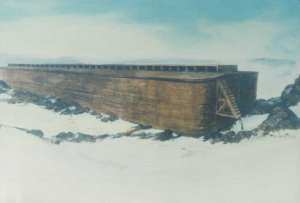Skepticism expressed by archaeologists and others over Noah's ark claim
 According to media reports, archaeologists and others are expressing skepticism a team of explorers has found the remains of Noah's ark on Turkey's Mount Ararat.
According to media reports, archaeologists and others are expressing skepticism a team of explorers has found the remains of Noah's ark on Turkey's Mount Ararat.
Paul Zimansky, an archaeologist at Stony Brook University in New York state, told National Geographic, "I don't know of any expedition that ever went looking for the ark and didn't find it."
The alleged discovery was announced in Hong Kong Monday by Turkish and Chinese explorers from Noah's Ark Ministries International.
Yeung Wing-cheung, a filmmaker who traveled with the explorers, told the Daily Mail, "It's not 100 percent that it is Noah's ark, but we think it is 99.9 percent that this is it."
They found seven large wooden compartments buried under snow on the mountain at 13,000 feet above sea level in 2007 and 2008, and returned with a film crew last October, the explorers have claimed.
Noah's Ark Ministries International team member Man-fai Yuen said in a statement, "The structure is partitioned into different spaces. We believe that the wooden structure we entered is the same structure recorded in historical accounts."
In the biblical account, Noah built a large boat called an ark at the behest of God and loaded it with his family and two of every species of animal in order to survive epic flooding. Some believe the ark wound up on Mount Ararat.
Radiocarbon-dated wood taken from the secret discovery site shows the purported ark is about 4,800 years old, which coincides roughly with the biblical time frame, the team has said.
Biologist Todd Wood, director of the Center for Origins Research at Bryan College in Tennessee, has his doubts because he questions the accuracy of carbon-dating and thinks the vessel would have been used to build homes after the flood waters receded. (With Inputs from Agencies)